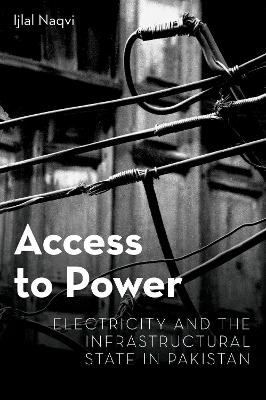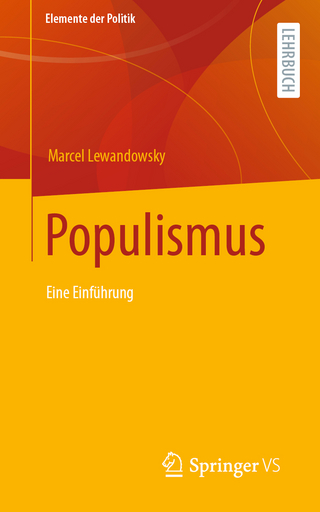
Access to Power
Oxford University Press Inc (Verlag)
978-0-19-754095-4 (ISBN)
Pakistan would desperately like to produce enough electricity, but it usually doesn't. Despite prioritization by successive governments, targeted reforms shaped by international development actors, and featuring prominently in Chinese Belt and Road investments, the Pakistani power sector continues to stifle economic and social life across the country. Why?
In Access to Power, Ijlal Naqvi explores state capacity in Pakistan by following the material infrastructure of electricity across the provinces and down into cities and homes. Naqvi argues that the national-level challenges of crippling budgetary constraints and power shortages directly result from conscious strategic decisions that are integral to Pakistan's infrastructural state. As he shows, electricity governance in Pakistan reinforces unequal relations of power between provinces and the federal center, contributes to the marginalization of subordinate groups in the city, and cements the patronage-based relationships between Pakistani citizens and the state that have been so detrimental to development progress.
Looking through the lens of the electrical power sector, Access to Power reveals how Pakistan actually works, and to whose benefit.
Ijlal Naqvi is Associate Professor of Sociology and Associate Dean for Curriculum and Teaching at the School of Social Sciences of Singapore Management University. He is interested in how states work on an everyday basis and draws on the fields of development sociology and urban studies in his research. Before becoming an academic Ijlal worked as a business consultant in the US and for the Pakistani government. Ijlal earned his Ph.D. from the University of North Carolina at Chapel Hill, has a MA in Law and Diplomacy from the Fletcher School at Tufts University, and a BA from Middlebury College.
Acknowledgments
Chapter 1: Introduction
Part I: The National Level of Analysis
Chapter 2: The Inter-Provincial Unevenness of the Infrastructural State
Chapter 3: Pathologies of Development Practice
Part II: The City
Chapter 4: The Administration of Losses
Chapter 5: Negotiating Formality in Islamabad's Katchi Abadis
Part III: Individual Level of Analysis
Chapter 6: Governance as an emergent compromise
Chapter 7: Money, Violence, and Connections: The Culture of Power
Chapter 8: Conclusion
References
Index
| Erscheinungsdatum | 03.10.2022 |
|---|---|
| Reihe/Serie | MODERN SOUTH ASIA SERIES |
| Zusatzinfo | 10 b/w line drawings; 2 tables |
| Verlagsort | New York |
| Sprache | englisch |
| Maße | 239 x 163 mm |
| Gewicht | 458 g |
| Themenwelt | Sozialwissenschaften ► Politik / Verwaltung ► Vergleichende Politikwissenschaften |
| Sozialwissenschaften ► Soziologie ► Spezielle Soziologien | |
| Wirtschaft ► Volkswirtschaftslehre ► Wirtschaftspolitik | |
| ISBN-10 | 0-19-754095-3 / 0197540953 |
| ISBN-13 | 978-0-19-754095-4 / 9780197540954 |
| Zustand | Neuware |
| Haben Sie eine Frage zum Produkt? |
aus dem Bereich


